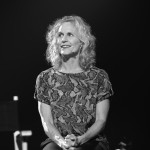What does the Bible say about itself? What do some of the authors have to say about the books or writings that make up the Bible? What is the evidence?
This is just a short consideration of one viewpoint: Peter
Peter wrote 2 books included in the New Testament, 1 & 2 Peter. We also learn a lot about his life and his interaction with Jesus in the Gospel accounts (Matthew, Mark, Luke and John) and from the historical narrative in the book of Acts. Peter was one of the twelve disciples and considered a leader among the twelve. Peter wrote his two letters to encourage and instruct “God’s chosen people who are living as foreigners” in various provinces outside of Israel.
Peter shares about his experience of being with Jesus in his letter:
“For we did not follow cleverly devised stories when we told you about the coming of our Lord Jesus Christ in power, but we were eyewitnesses of His majesty. He received honor and glory from God the Father when the voice came to Him from the Majestic Glory, saying, ‘This is My Son, whom I love; in Him I am well pleased.’ We ourselves heard the voice that came from heaven when we were with Him on the sacred mountain.” 2 Peter 1:16-18
Luke records one of Peter’s first speeches “You killed the author of life, but God raised him from the dead. And we are witnesses of this fact!” Acts 3:15
Peter also explains his view of the reliability of Old Testament books:
“We also have the prophetic message as something completely reliable, and you will do well to pay attention to it as to a light shining in a dark place, until the daylight dawns and the morning star rises in your hearts. ABOVE ALL*, you must understand that no prophecy of Scripture came about by the prophet’s own interpretation of things, for prophecy never had its origin in the human will, but prophets, though human, spoke from God as they were carried along by the Holy Spirit.” 2 Peter 1: 19-21
Again, Luke records Peter’s words regarding the Old Testament prophets, “Starting with Samuel, every prophet spoke about what is happening today. “ Acts 3:24
It is particularly noteworthy that Peter was the same guy who followed Jesus from a distance after Jesus’ arrest and during the various mock trials and beatings Jesus was subjected to before He was finally crucified. Peter even denied knowing Jesus three times during this period. We can imagine Peter’s fear of being recognized as an associate of Jesus and the potential that he too might be beaten and killed. Peter was not listed as a witness to Jesus’ death, as were many others. Peter’s hopes were dashed when he saw Jesus’ suffering and learned of His death. He was not bold. He was fearfully holed up in a safe room when Mary came to announce that she had seen the resurrected Jesus.
Peter’s experience of the resurrected Jesus significantly impacted his life to the extent that he became a bold vocal spokesman and spent the rest of his life sharing the message God wanted people to know. Instead of hiding, he endured imprisonment and suffering in order to share the life-changing message of Jesus Christ.
Peter’s first encounter of imprisonment for speaking of Jesus happened like this:
After a man who had been lame and unable to walk for more than forty years was instantly healed at the word of Peter in front of a large crowd in the temple, Peter are John are imprisoned. When given an opportunity to speak in his own defense Peter states,
“Rulers and elders of our people, are we being questioned today because we’ve done a good deed for a crippled man?
“Do you want to know how he was healed?
“Let me clearly state to all of you and to all the people of Israel that he was healed by the powerful name of Jesus Christ the Nazarene, the man you crucified but whom God raised from the dead. For Jesus is the one referred to in the Scriptures, where it says, ‘The stone that you builders rejected has now become the cornerstone.’
“There is salvation in no one else! God has given no other name under heaven by which we must be saved.”
Notice what Peter said about the exclusivity of Jesus.
The members of the council were amazed when they saw the boldness of Peter and John for they could see that they were ordinary men with no special training in the Scriptures. They also recognized them as men who had been with Jesus. But since they could see the man who had been healed standing right there among them, there was nothing the council could say.
When Peter and John were threatened by the council and ordered NEVER to speak in the name of Jesus again, they boldly proclaim,
“Do you think God wants us to obey you rather than Him? We cannot stop telling about everything we have seen and heard.
Peter went from cowering and denying Jesus to a bold proclaimer of the message of God in a very short space of time. The catalyst for this remarkable change was his encounter with the resurrected Jesus Christ.

Author: Becky Hastings, wife, mother, grandmother, passionate follower of Jesus Christ and truth seeker, especially in the areas of health and children. Navigating our present day world can be challenging, God’s timeless truths in the Bible are my guide.



